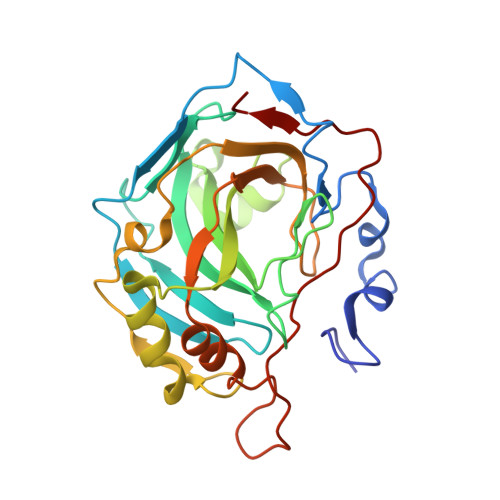Design of [(2-pyrimidinylthio)acetyl]benzenesulfonamides as inhibitors of human carbonic anhydrases.
Capkauskaite, E., Zubriene, A., Baranauskiene, L., Tamulaitiene, G., Manakova, E., Kairys, V., Grazulis, S., Tumkevicius, S., Matulis, D.(2012) Eur J Med Chem 51: 259-270
- PubMed: 22440859
- DOI: https://doi.org/10.1016/j.ejmech.2012.02.050
- Primary Citation of Related Structures:
3M2N, 3S8X, 3S9T, 3SAP, 3SAX, 3SBH, 3SBI - PubMed Abstract:
A series of [(2-pyrimidinylthio)acetyl]benzenesulfonamides were designed and synthesized. Their binding affinities as inhibitors of several recombinant human carbonic anhydrase (CA) isozymes were determined by isothermal titration calorimetry (ITC) and thermal shift assay (TSA). A group of compounds containing a chlorine atom in the benzenesulfonamide ring were found to exhibit higher selectivity but lower binding affinity toward tested CAs. The crystal structures of selected compounds in complex with CA II were determined to atomic resolution. Docking studies were performed to compare the binding modes of experimentally determined crystallographic structures with computational prediction of the pyrimidine derivative binding to CA II. Several compounds bound to select CAs with single-digit nanomolar affinities and could be used as leads for inhibitor development toward a select CA isozyme.
Organizational Affiliation:
Vilnius University, Institute of Biotechnology, Department of Biothermodynamics and Drug Design, Graičiūno 8, Vilnius LT-02241, Lithuania.


















